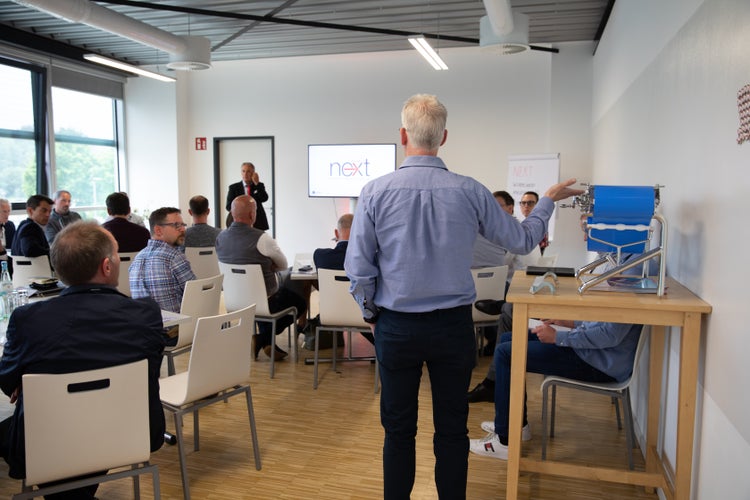Building a strong food safety culture

NEW ORLEANS — Food safety is a paramount concern for all food producers. However, instilling that concern into every employee can be difficult in such a complex industry. Creating or building a strong food safety culture in an organization can do that.
Todd Bacon, Ph.D., senior director of quality systems, supply chain management for McDonald’s USA, and Darin Zehr, general manager, Commercial Food Sanitation, discussed the importance of merging food safety into company culture during a presentation at Intralox’s NEXT Conveyance Innovation Summit, held April 11 to 13.
Dr. Bacon said food safety and culture are terms that are not mutually exclusive. The history of a company and its leadership define culture. He said food producers are only as good as their weakest link and a company needs to know what is happening at every step of production and distribution to assure safe food for consumers.
Dr. Bacon said food safety and culture are terms that are not mutually exclusive. The history of a company and its leadership define culture. He said food producers are only as good as their weakest link and a company needs to know what is happening at every step of production and distribution to assure safe food for consumers.
Todd Bacon, Ph.D., senior director of quality systems, supply chain management for McDonald’s USA, speaks to attendees at at Intralox’s NEXT Conveyance Innovation Summit. Source: Intralox
“Not knowing is no longer a valid excuse,” Dr. Bacon said. “Consumers expect you to know what’s happening in the supply chain.”
To complicate matters, consumers’ demand for product information is being fed by social media and other channels. Dr. Bacon argued that companies need to be proactive to avoid any problem that can damage a brand’s equity and future. Many issues with food safety occur on the ground level of companies. Often, the most vulnerable parts of a supply chain are managed by line workers or, in McDonald’s case, food service employees. Only a strong food safety culture, Dr. Bacon said, will impact those workers and make them care as much about food safety as the c.e.o.s of a company.
“Culture drives decisions and actions when nobody is watching,” he said.
There is also a difference between understanding the importance of food safety and knowing what every individual’s role is in protecting it. Mr. Zehr said one way to make sure everyone in a company understands their role is to make food safety have personal meaning. He said establishing a relationship between a product and the person makes them think about how their actions can affect a friend or a loved one if there is a contamination. The personal impact, Mr. Zehr said, can be more impactful than throwing data at them and showing the losses that a company can incur because of a contamination.
Darin Zehr, general manager, Commercial Food Sanitation, encouraged attendees to make personal connections when explaining the importance of food safety. Source: Intralox
“Making food safety personal so that people make the right decisions is critical to winning their hearts to inspire them to make the right decisions,” Mr. Zehr said.
Another strategy to make sure a culture of food safety permeates an organization is to empower employees. Dr. Bacon said companies should invest in education to show employees why food safety is so important. Then define what food safety is for the company and empower employees to take steps to ensure goals are met.
“It is tough to have organizational accountability at the levels where it really matters if people don’t feel empowered to do the right thing,” Dr. Bacon said.
To encourage and empower employees, Mr. Zehr said companies need to be transparent to make sure departments are communicating properly and are supporting each other. Despite the complexities of the food industry, there are ways to work together to reach food safety goals. Being proactive and instilling and fostering a good food safety culture in a company is one way to avoid future problems.
“You want to ask yourself,” Dr. Bacon said. “If something happens tomorrow, what do you wish you were doing today?”

